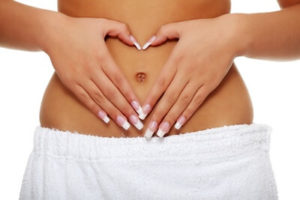
Millions of Australian’s experience Irritable Bowel Syndrome (IBS) each year.
You might be here because you’re struggling with IBS or you know somebody who is.
Perhaps you have tried many strategies to discover nothing have helped you yet.
What is Irritable Bowel Syndrome (IBS)?
Irritable bowel syndrome is abdominal pain or discomfort for at least three days per month within the past three months. Plus two or more of the following:
- Relief by defecation
- Change in frequency of stool
- Change in consistency of stool
Other diseases are ruled out via a physical exam and tests before IBS is diagnosed.
Western Medical View
The cause of IBS isn’t well understood in Western medicine.
This could be because there’s often no abnormal changes on lab tests, x-ray or biopsies to suggest a problem.
Sensitive bowels due to bacterial overgrowth of the normal flora in the small and large intestine has been considered but not proven.
Hypersensitivity to normal amounts of intestinal gas has also been proposed but is un-proven.
Other diseases confused with IBS include:
- Food and chemical intolerances
- Drug-induced diarrhoea
- Laxative abuse
- Crohn’s disease
- Ulcerative colitis
- Bowel cancer
- Diverticular disease
- PMS
Western Medical Treatment
Firstly, avoiding large meals, eating slowly, reducing fermentable carbohydrates, sweets and fruit is recommended.
Secondly, symptomatic treatment includes anti-cholinergic drugs, antidepressants, serotonin re-uptake inhibitors and 5HT3 antagonists.
None of these are proven to treat benefit IBS symptoms and may come with adverse side effects.
Finally, patients with lactose intolerance benefit by removing dairy from their diet. Exercise can improve bowel movements in patients with constipation.
Chinese Medical View
Several underlying problems have been pin pointed in Chinese medicine that lead to symptoms of IBS.
Structurally the organs may be completely normal. However, Chinese medicine has the ability to detect functional changes through it’s own diagnostic methods.
“IBS is a ‘functional disorder’ because there are no signs of disease when the bowel is examined yet the function has changed” – Centre for Digestive Diseases.
Imbalances Chinese Medicine Considers Leads To IBS
- Firstly, a ‘Spleen T/T Disfunction’ means the Spleen isn’t transforming and transporting nutrients properly. When this happens, fatigue, diarrhoea, abdominal pain and bloating occur.
- Secondly, poor fluid metabolism. Nausea, feeling heaviness in the abdomen, incomplete bowl movements and constipation are common. Eating fried, cold and dairy foods aggravate this by affecting the spleen’s ability to transform fluids.
- Third, ‘a Cold digestive system’ presents with pain and the urge to curl into a ball and pain may be accompanied with loose stools or constipation. A diet full of cold, raw foods diet aggravates this.
- “Kidney Deficiency’ presents with cold hands and/or feet, diarrhoea in the morning with undigested food. Low back pain, low libido, frequent urination are common.
- ‘Poor circulation through the Liver’ may lead to feelings of depression, fatty liver, painful periods and distending pain below the ribs are seen. This directly affects the stomachs ability to digest foods.
- ‘Liver over-acts’ on the stomach presents with alternating constipation and diarrhoea. High stress can also be a trigger.
- Finally, ‘inflammation in the Large Intestine’ is seen with patients that have abdominal pain and diarrhoea with a sense of urgency. Yellow, explosive diarrhoea with a burning sensation is felt. There could be low-grade infection, but may not show on lab tests.
How Acupuncture and Chinese Medicine can help
Firstly, a physical exam is performed to pin point the cause of IBS.
Once a diagnosis is made, options such as acupuncture, herbal medicine and dietary changes may be prescribed.
4 Steps To Manage IBS
- Firstly, get tested for food intolerances
- Keep a diary to identify what food aggravates symptoms
- Avoid cold/raw and hot/spicy food
- Finally, book an initial assessment here
David L. Edwards is an author, herbalist and licensed acupuncturist. He is the author of The Body Fat Formula and The Pocketbook guide to Chinese medicine and painless cures (available on amazon). David is the creator of Barefoot Health and Wellness health programs.
Apply for the IBS support program here. Or book an assessment with David by calling 9462-0585
If you got value from this article, share it with your friends on Facebook by clicking the share button so they too get access to this important information.
References
- Porter, Kaplan (editors). The Merck Manual of Diagnosis and Therapy, 19th ed. Merck Sharp & Dohme Corp., Whitehouse Station, N.J. pg. 162-165, 2011.
- Maciocia, Giovanni. The Practice of Chinese Medicine, Churchill Livingstone, New York, pg. 757, 799, 817, 2008.






Such a great information. Thank you for sharing this blog with us.Now i know how to managing Irritable Bowel Syndrome.Thank you for this step to manage Irritable Bowel Syndrome.
I like this web blog very much, Its a rattling nice office to read and receive info .
Great post, I conceive people should learn a lot from this weblog its rattling user friendly.
Thanks for all your efforts that you have put in this. very interesting information.
I was recommended this web site by my cousin. I’m not sure whether this post is written by him
as no one else know such detailed about my trouble.
You’re wonderful! Thanks!